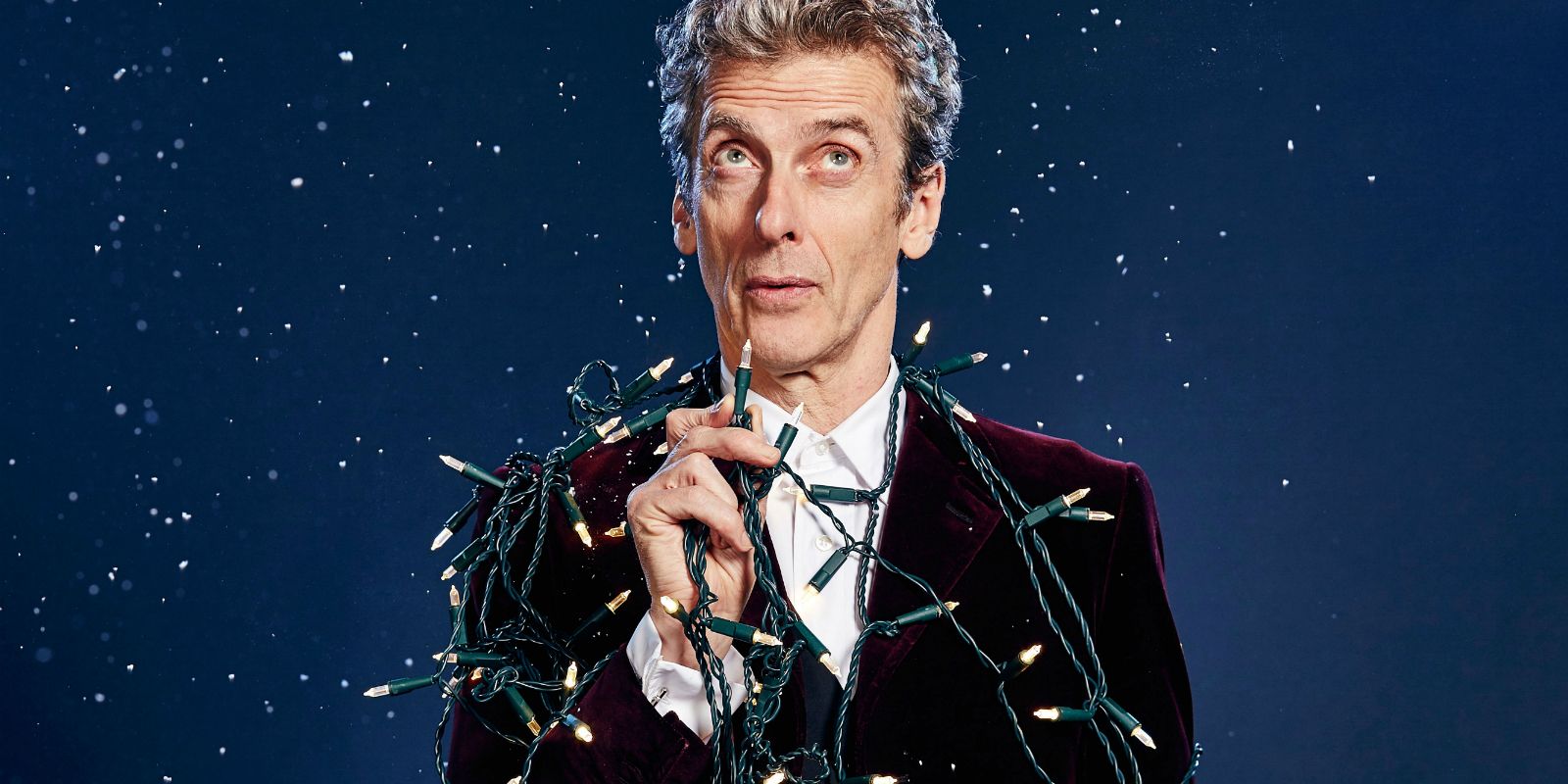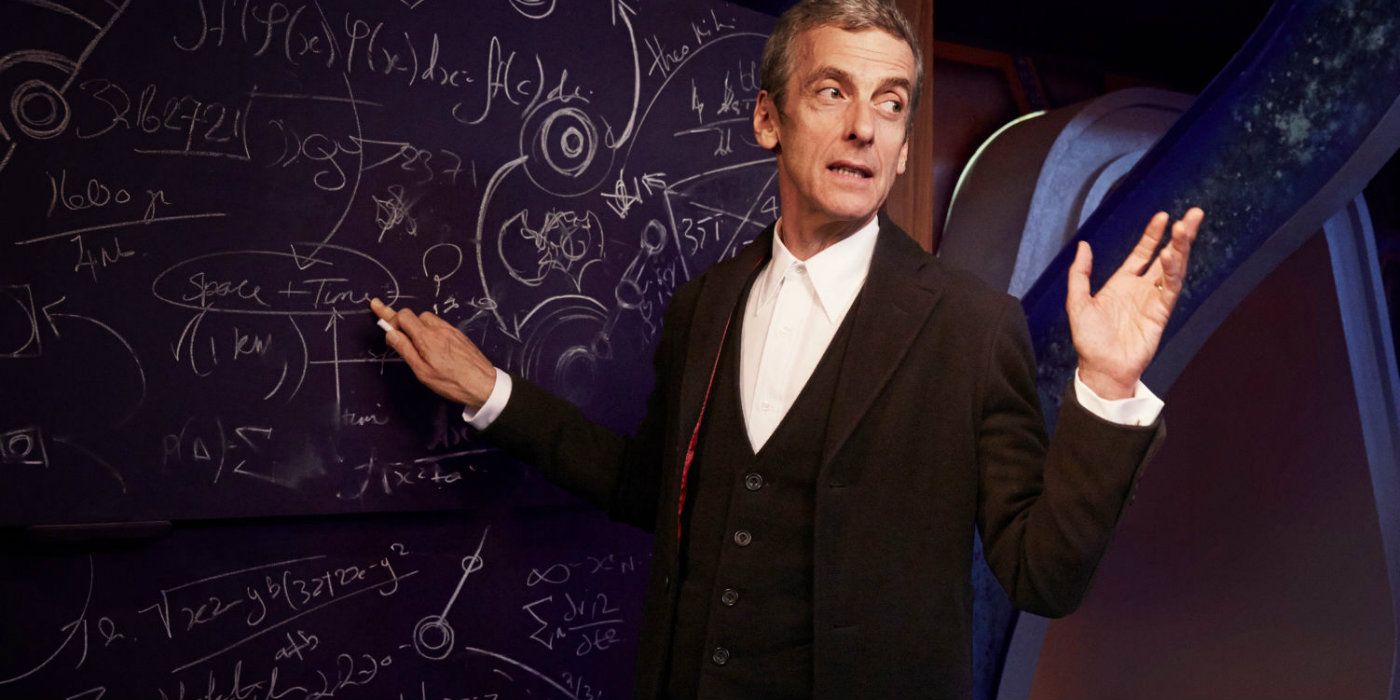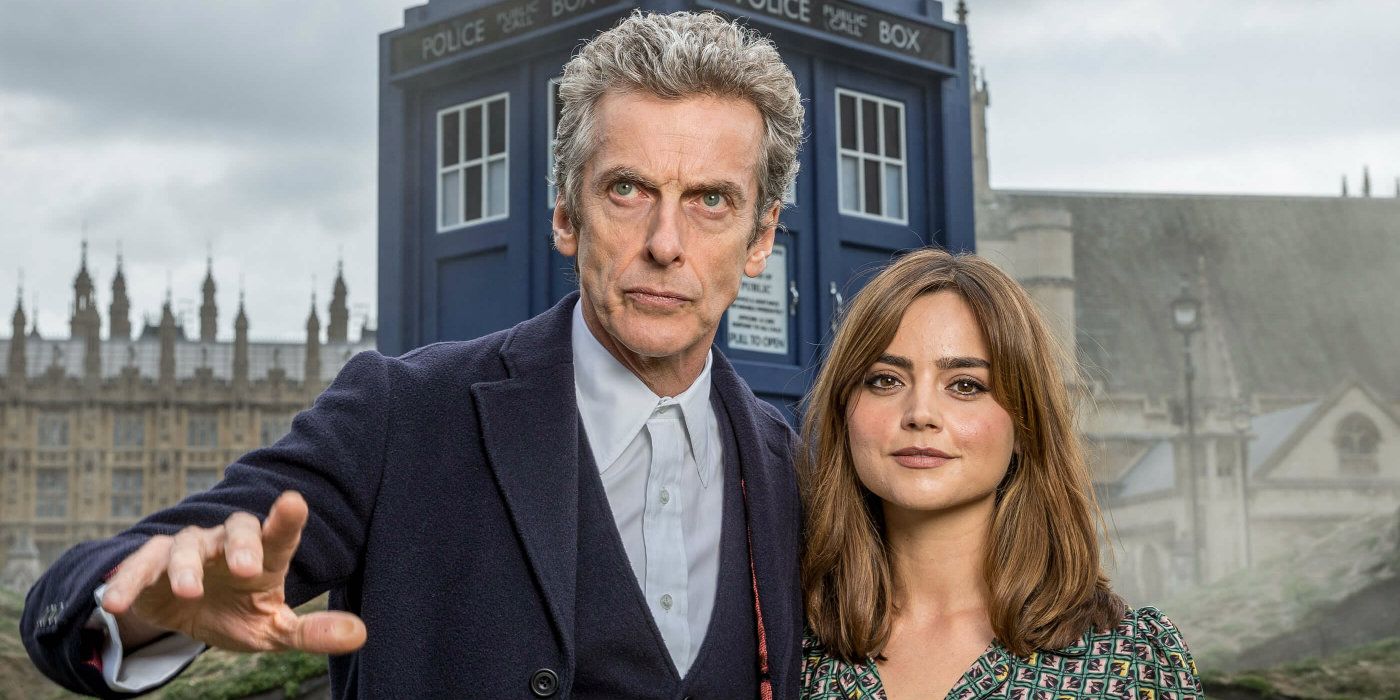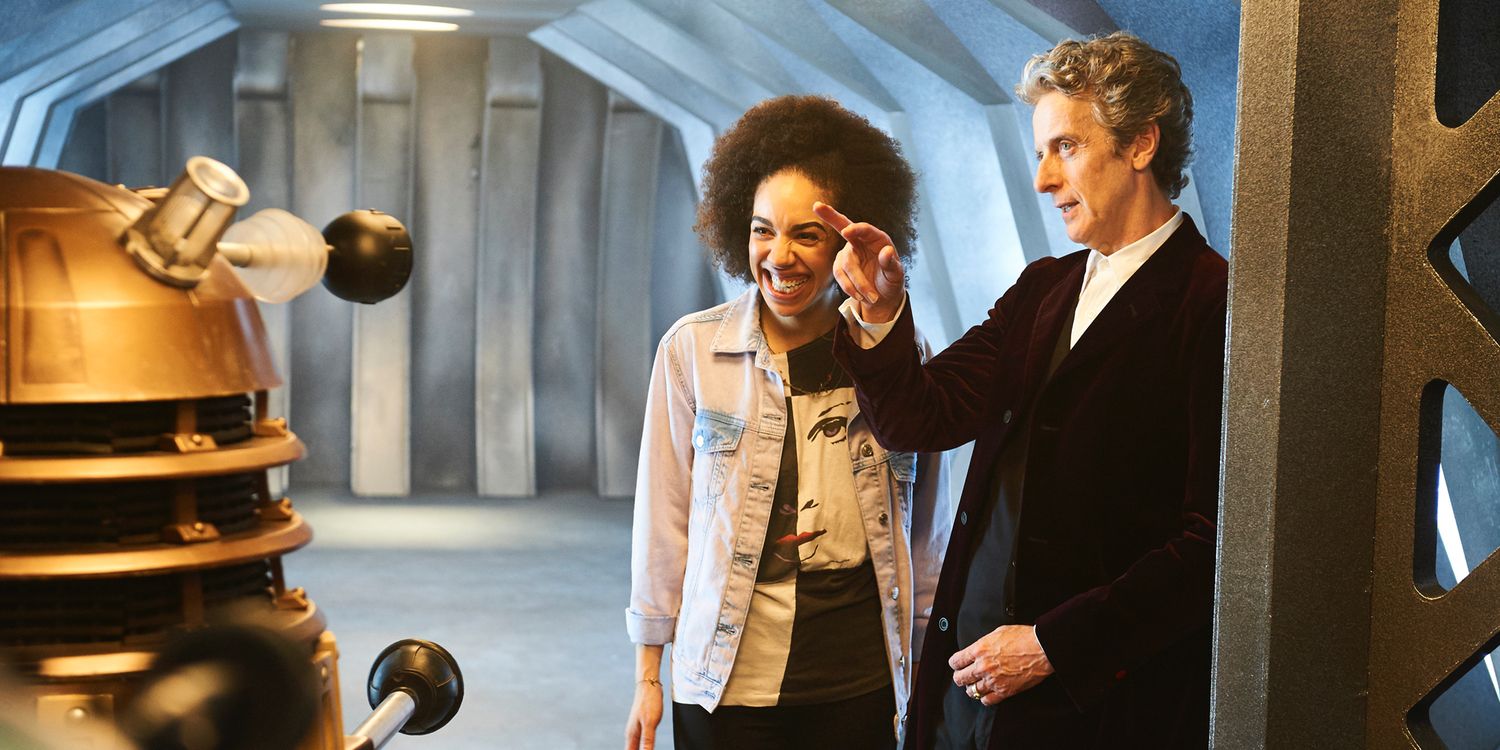The biggest strength of Doctor Who is its built-in capability for reinvention. It’s a sci-fi show, but that’s a loose term when the central conceit is traveling anywhere in time, space and even genre; you can be watching a genuinely dark exploration of the human psyche on week, and a knockabout yarn with flimsy aliens in some period setting the next, without the shift feeling jarring. On a more macro scale, regeneration allows for the show to run indefinitely and change up its star with a degree of freedom.
In this vein, the show is currently set to go through its biggest shake-up since returning in 2005. After the tenth rebooted season (36th overall) this year and one more Christmas special, showrunner Stephen Moffat is stepping down to be replaced by Broadchurch's Chris Chibnall. And, as recently revealed, Peter Capaldi will be handing in the TARDIS keys. It truly is the end of an era - Moffat has been showrunner since 2011, and Capaldi the Doctor since 2013.
There are definitely reasons to be excited. Farewell events are always highlights of a Doctor Who run, and Chibnall is a proven TV talent (Broadchurch, for season 1 at least, was an essential mystery thriller). It also allows us to rev up the always fun recasting cycle. But this time there's a sense of going out on a low; recent years have seen a drop in viewing figures, and inside word points towards the BBC all but demanding a change to the status quo. Worse, it draws a line under Peter Capaldi's tenure, which can at best be described as a resounding disappointment.
After Matt Smith announced he was going to vacate the role, the bookie's favorite to replace him was far and away the Thick of It star, and the fans agreed. When Capaldi was officially announced by the BBC, it was to a wave of optimism. The company was keen to push his old school Whovian credentials, bringing out a letter that Capaldi had written to the then-writers of the show during his childhood.
For the show going forward, he offered something exciting. All the Nu-Who Doctors had been good in their own way, but the specter of the Time War (a cataclysmic event that wiped out the Time Lords and the Daleks) had heavily influenced these more modern takes. Capaldi was 15 years older than any of the previous three actors when they took on the role, promising a more classically-infused portrayal of the 1000-year-old traveler - more in the vein of William Hartnell than David Tennant - that wouldn't be the subject of questionable and tiresome "will they, won't they" companion relationships.
It didn't work out. Capaldi always gave the role his absolute all, but has rarely received writing to match in return.
Problems were evident from the very start. Straight after his regeneration, Capaldi's first words were asking how to fly the TARDIS, establishing a strange memory loss trait. Early on in his run, he would be confused about who he was and whether he was "a good man" - a cute idea, but it was never followed up by a moment of realization, making him far too aimless a wanderer. The simple fact is that none of the writers quite knew how to write an older Doctor, so decided to make it up as they went along. His personality would vary widely from episode to episode, typically reverting to anger, and he became insufferable as a result. There was never a confidence in the new character, crystallized by having a Matt Smith cameo at the end of Capaldi's first ever episode, imploring fans to buy into him.
The Doctor is many things, but at his best there's a focused throughline to a portrayal: Christopher Eccleston was a war vet crippled by guilt; David Tennant a loner coming to terms with his isolation; Matt Smith an ever-ageing figure is a far too youthful body. What Capaldi was and is remains a mystery. Is he a kooky old man? A curmudgeon trying to be youthful? A doomed figure given a new lease of life? He's all of those and none at the same time.
He wasn’t helped by having play off of Clara. For season 7, Jenna Coleman’s companion was Matt Smith's "mystery girl," but once her backstory was explained (she entered the Doctor's timestream and saved him repeatedly throughout history) the writers had to face up to the fact they’d never got around to giving her much of a personality. Season 8 tried to segue her into a "bossy" archetype, but it clashed with her superhero origins and flattened the Doctor-companion relationship.
The characterization shot Doctor Who in the foot, but those issues aside season 8 was still a mess. Responding to criticism that Matt Smith's tenure had been too dominated by multi-season story arcs that made simply following the show impossible for casual fans, Moffat stripped things back and had each episode a self-contained story. Sadly, not a single one of the standalone adventures was remotely interesting or memorable, making for the worst season of the show by a popular margin. The season wasn't helped by the stripped back arc they did throw in: the Doctor's deceased enemies from across time and space have all been brought to heaven, later revealed to be a mind hub for converted Cybermen in 21st Century London by Missy (a gender-swapped Master). It made little sense at the time and even less now.
It was a shocking debut season, and one that suffocated Capaldi’s performance. Thankfully, things began to improve in season 9. The writers re-corrected structurally and moved to all two-parters, which led to some heady, thrilling adventures. There was still confusion about Capaldi's character – for some reason they insisted on him being a “cool” Doctor, with a changing haircut and sonic sunglasses – and once again, the series arc (a mythical "hybrid" feared by Time Lords) was undercooked and never truly explained, but the two-parter logic gave more breathing room for the characters and they became better defined.
The ratings didn't reflect this, but it was peak Doctor Who. By the end, both actors had begun to find their groove and Capaldi was gifted what may just be the best episode in the entire run in "Heaven Sent", which had him trapped in a mysterious castle up against a hunched, fly-ridden skeleton that could only be warded off by revealing his darkest secrets.
Unfortunately, for all the improvements of season 9, the writers have been unable to capitalize on it. They couldn't get a season together for 2016, so the momentum's stalled, and while the placeholder Christmas specials were fun, they again struggled with the question of who the Doctor is. Now the new series is yet another reinvention, this time with a meta-quipping companion, it’s hard to shake the feeling the BBC has written off the Capaldi era and season 10 will just be a placeholder before they get to reset. As it stands, Capaldi's two-thirds of the way through his run and it's hard to not call him a lame-duck Doctor.
The quality of Doctor Who writing has always varied. David Tennant was excellent in the role, but as time wore on his stories (especially the big specials and finales) became increasingly hackneyed and reliant on fake-outs and macguffins. But there was always a clear vision of what showrunner Russell T. Davis wanted to achieve. What’s hampered Capaldi’s tenure is that Steven Moffat doesn’t have his own clear vision - at least, not anymore.
Moffat was once the wunderkind of Doctor Who. His episodes were a highlight before he became showrunner and his early work with Matt Smith was the best the show's ever been, but as time's gone on it has become clear he doesn't have the same verve; ever since Amy and Rory left in season 7, it's felt like we're on repeat. Female characters all seem to fit into a limited number of tropes. Series arcs take an interesting "what if?", tease it for twelve episodes, then explain it in such a way that the logic collapses with a simple "hold on a minute." There are glimpses of fresh brilliance - the 50th Anniversary special explained the Time War spectacularly, and Matt Smith's regeneration managed to tie together most loose ends - but for the most part Moffat has never had the energy to do Capaldi justice.
Moffat once stated he viewed Game of Thrones as a genuine competitor, which goes some way to explaining why things are so erratic. Doctor Who is at its heart a tea-time family show that flaunts its inconsistencies. To measure it against a grand, sprawling prestige fantasy show is only going to create a serious inferiority complex. Capaldi's first episode opened with a giant T-Rex in the Thames. It served no relevance to the story at hand and was dropped after a minute of screentime, but still zapped the episode's budget and overshadowed the rest of the story; it had no purpose beyond being the sort of spectacle you'd get in Game of Thrones.
Areas of the fandom have rightly pointed out Moffat's flaws (and the same criticisms have rightfully befallen Sherlock), but for all their dominance the showrunners aren't the face of Doctor Who. While in most TV series a turn for the worse around season 8 is hardly shocking (Moffat alone has overseen six seasons), they don't do it with a new actor as the lead; Capaldi takes the brunt of the ratings and quality drop, despite giving it his all. If it wasn't for focused shows of skill like "Heaven Sent," he could risk being called the worst Doctor through no fault of his own.
Of course, it's possible that season 10 will really turn things around and give Capaldi a chance to shine in his last hurrah as the Doctor. Let's hope so, because he's certainly earned it.




